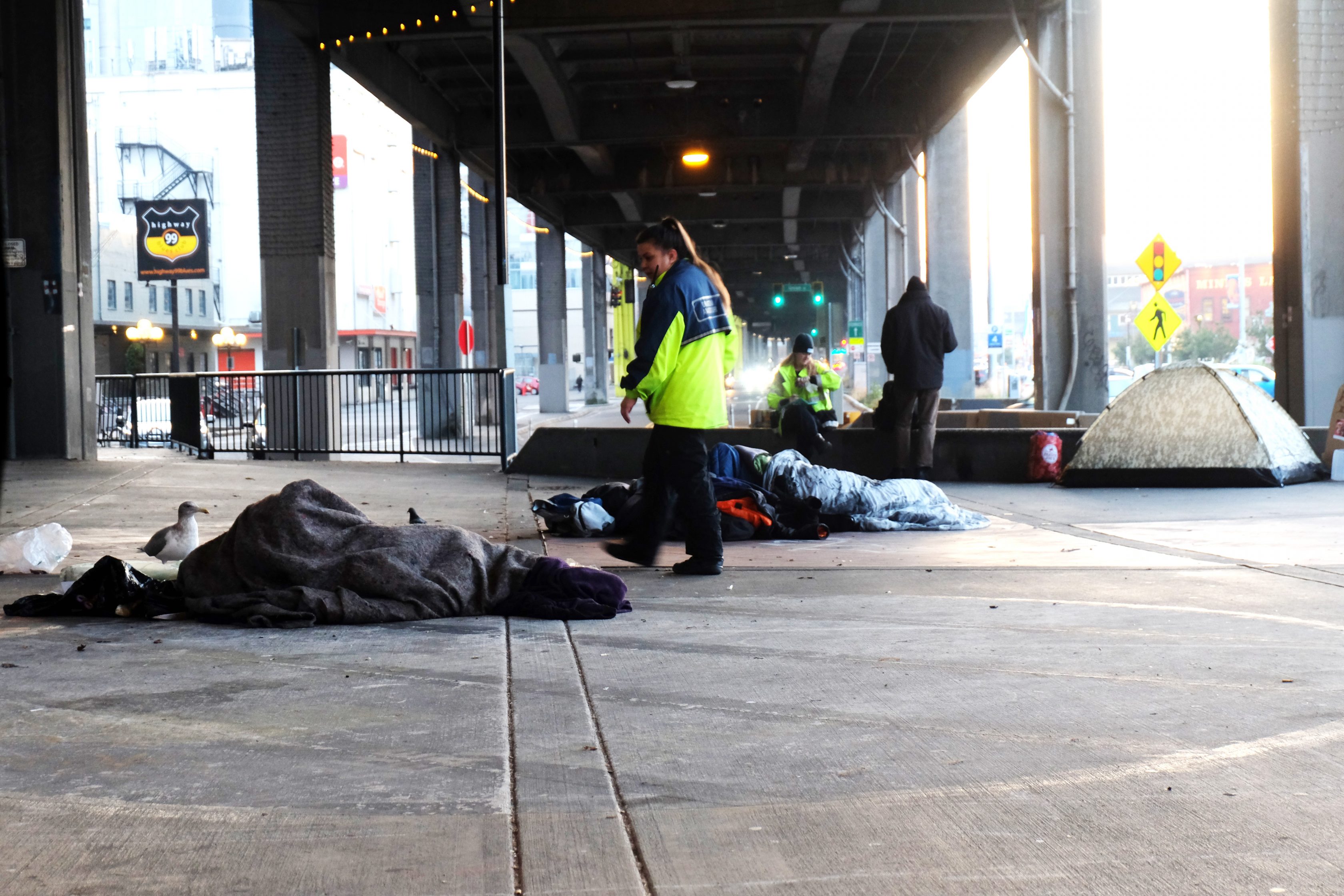This essay by Fawn Batten is based on interviews with The Seattle Times, and has been condensed and edited for clarity.
There’s times when you’ll see movement under a blanket and you won’t get no response. That’s when you’re just like, “Okay, be safe, have a good day.” And you go do whatever and come back in 30 to 40 minutes and guess what? They’re gone.
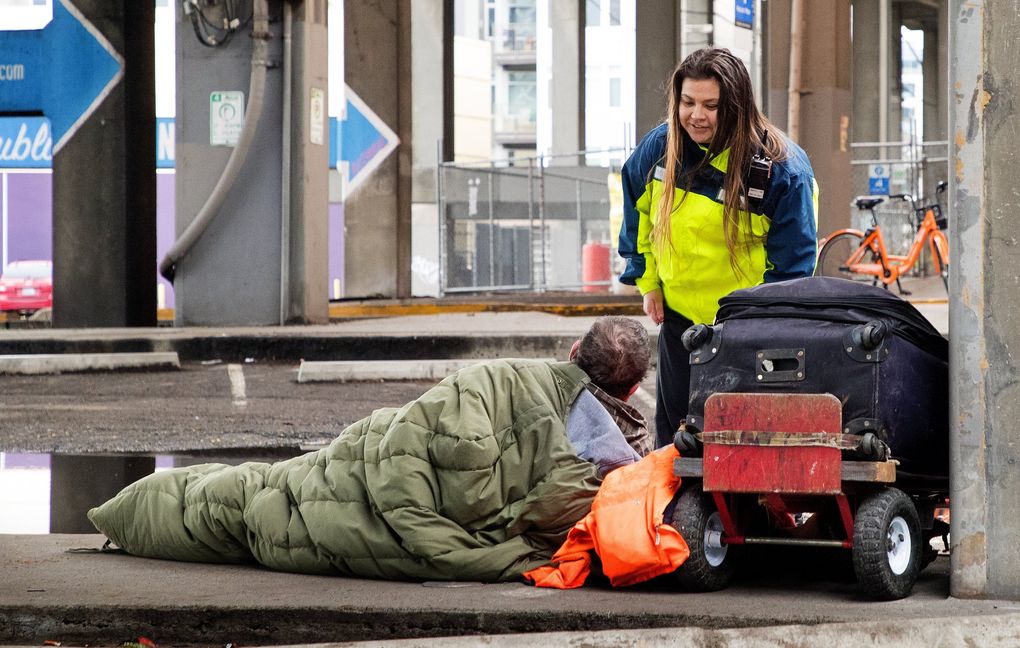
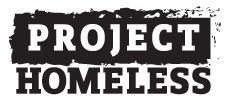 Project Homeless is a Seattle Times initiative that explores the causes of homelessness, explains what the Seattle region is doing about it and spotlights potential solutions. It is funded by the The Bill & Melinda Gates Foundation, Campion Foundation, the Paul G. Allen Family Foundation, Raikes Foundation, Schultz Family Foundation, Seattle Foundation, Seattle Mariners, and Starbucks. Seattle Times editors and reporters operate independently of our funders and maintain editorial control over Project Homeless content.
Project Homeless is a Seattle Times initiative that explores the causes of homelessness, explains what the Seattle region is doing about it and spotlights potential solutions. It is funded by the The Bill & Melinda Gates Foundation, Campion Foundation, the Paul G. Allen Family Foundation, Raikes Foundation, Schultz Family Foundation, Seattle Foundation, Seattle Mariners, and Starbucks. Seattle Times editors and reporters operate independently of our funders and maintain editorial control over Project Homeless content.
· Find out more about Project Homeless 
Are you going to wake up on the right side of the bed every day? Because I know I’m not the nicest person in the morning at times. You’ve been outside all day, maybe you’re wet all night, and you just went to sleep an hour ago. And maybe you had somebody attack you. You’ve got to think of all these different things that could’ve happened, and what’s going to come of you waking somebody up like that.
A lot of people will stop and they’ll be like, “oh, you’re the police” — and I’m like, “Actually, I’m not. And actually I’ve probably got a more extensive criminal history than you think.”
I used to be on the street 24/7, 365. Hustling the streets, not doing things I should be doing. But I never jumped into the drug habit — never been a drug person. I feel like a lot of people respect me more out here just because they know me from ripping and running. But now they’re like, “Wow, you did it. You can do it, I can do it.” And I’m like, “You’ve got to get out of this life. You haven’t gone nowhere since the last time I hung out with you, and that was years ago.”
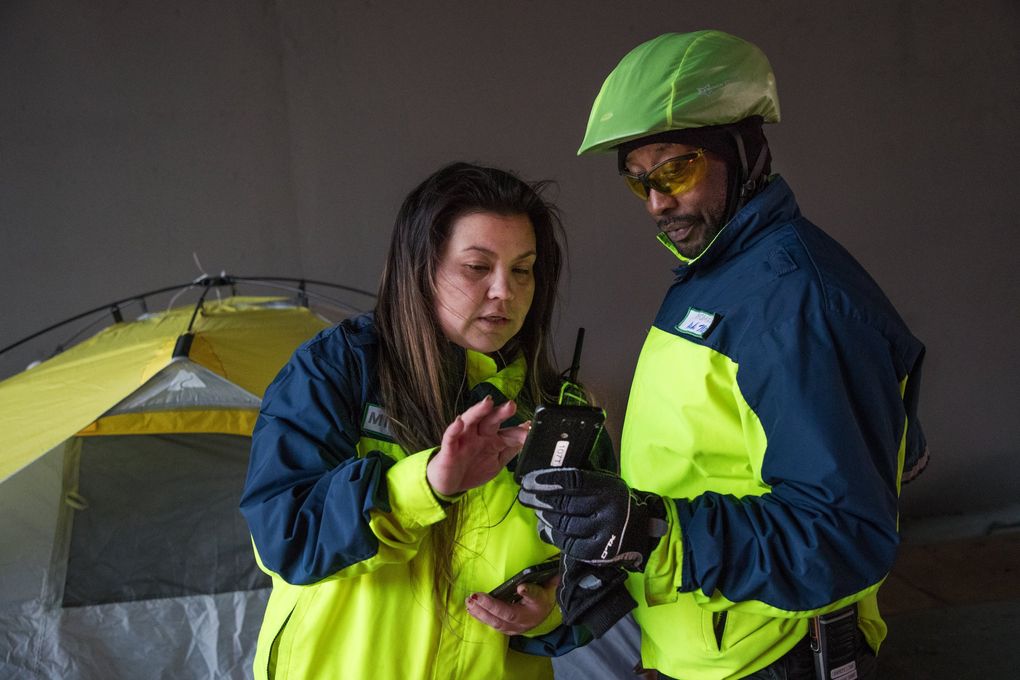
I’ve always been the type that wanted to go do something. I grew up in Eastern Washington on the Colville Indian reservation, in Nespelem. It’s a speck. Don’t close your eyes or you’ll pass it. We didn’t have sidewalks. We didn’t have stoplights, you know? We played in the dirt, and we jumped on our bikes and disappeared into the woods all day.
Since I could talk, New York was my ultimate place. I’d see the ball drop on TV, and I’m like “Wow, look at all the people, look at all the billboards.” There’s more to do. The night life. The malls. The shopping. The fashion. The conversations. I guess I love people. I love being surrounded with people.
When I turned 18, I moved to Spokane, and I found out Spokane is a big town — it’s not a city. So I moved to Seattle about 10 years ago. I left all my friends and family behind, to start this wonderful path of going down the wrong way.
When I first moved over I had somewhere to stay. I had my own place. I had everything together. But I had gotten into a relationship that happened to come with a lot of domestic violence.
I went homeless out here because I was scared to go back home. You get to a point where you start to hyperventilate, you have an anxiety attack, and then you get scared — and you could have people take care of him, but you don’t want to get people involved, and you’re by yourself.
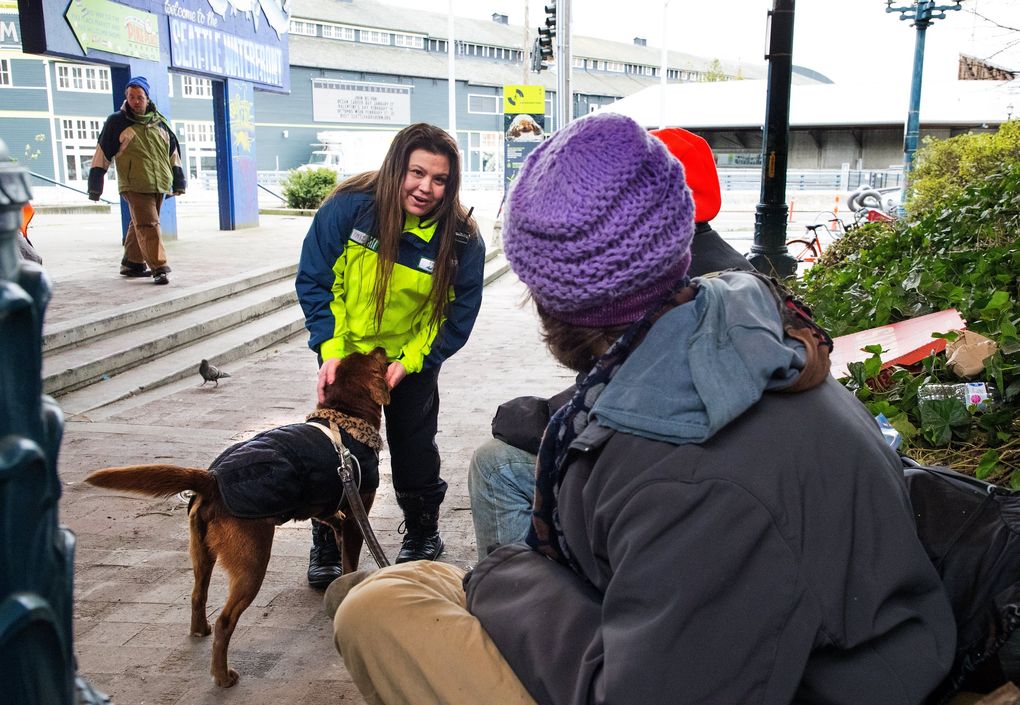
Living on the street, a lot of things can happen. People attack you, people try to rape you, they try to take you out, rob you. Whatever. I’m thankful that nothing has happened to me. I’m thankful I was able to run when I ran, or jump a fence when I needed to. I lived a wild life, so I did what I had to do.
I think the day that I knew I really had to change my life was the day I found I was pregnant with my son. That’s when I knew I had to change.
But it took a long time. It took from being told I was pregnant, to a couple years I had to keep working on changing myself and making that permanent change.
And I would keep going back to my boyfriend. We were in a relationship for a really long time and we didn’t even have two kids until the end.
We were always around each other, we’d always hang out, we’d always meet up. I’d get a hotel room with the late-night program, I’d tell him to come. I got trapped and I would want him to be a better person.
And more and more, his violent history would come out, because of his insecurities. I don’t know why I stayed. That’s a question I’ll never really fully understand within myself.
The last beating I took was the worst one. It was maybe 40 minutes, and I was trapped in the house. I wasn’t able to leave for two days. But I had to go and get my hand taken care of, because it was really bad. I lied to the doctors when I was there, and said I was in a car wreck. I hit my head on something and I don’t know where the person went. Whatever.
I lied. But I couldn’t keep lying across the board, because it’s only obvious what happened. I was probably unrecognizable on this side of my face. I’ve had my face fractured a bunch of different times, my head split open a bunch of different times, but this was definitely the worst. Doctors told me my hand was broken, and I had to get surgery.
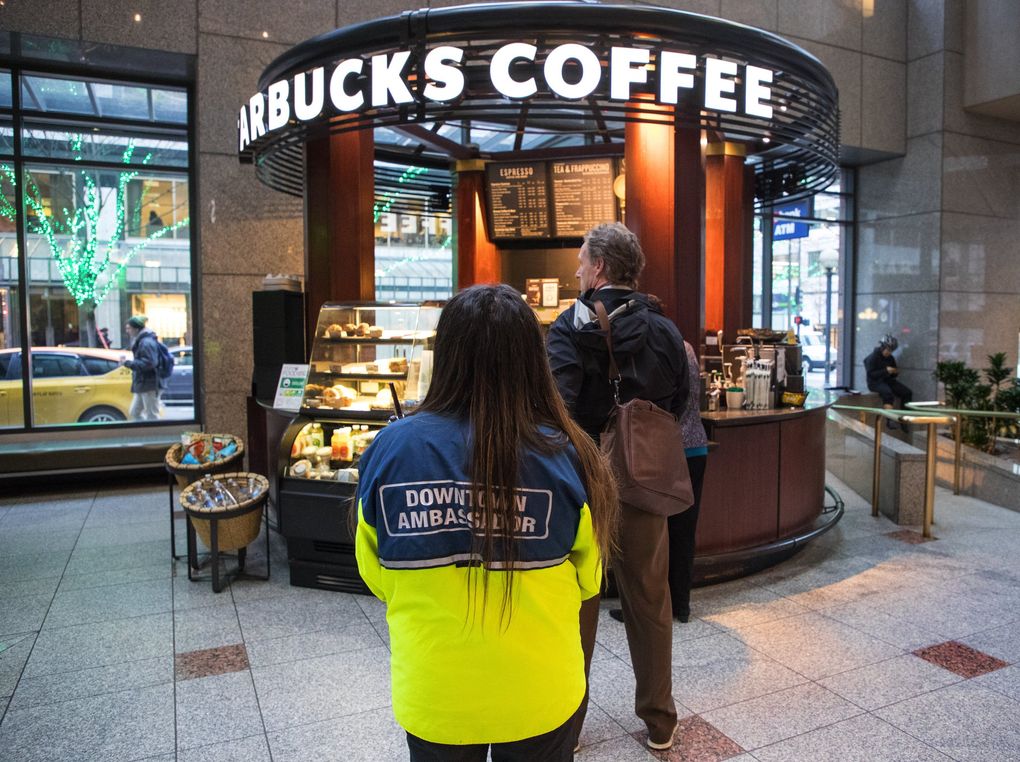
My son was 1 or 2 months old. A caseworker in the late-night program saw I was really bad and called CPS; CPS came and told me if I didn’t tell on my partner, to the police, CPS was going to take my child away. They were going to take my son away, saying that I potentially can put my child in a dangerous situation with someone that would hit me, and how can I take care of my child when I’m beat up?
They were literally sitting there, waiting to see what I was going to say, to see if they were going to take my child or not. “Are you going to tell?”
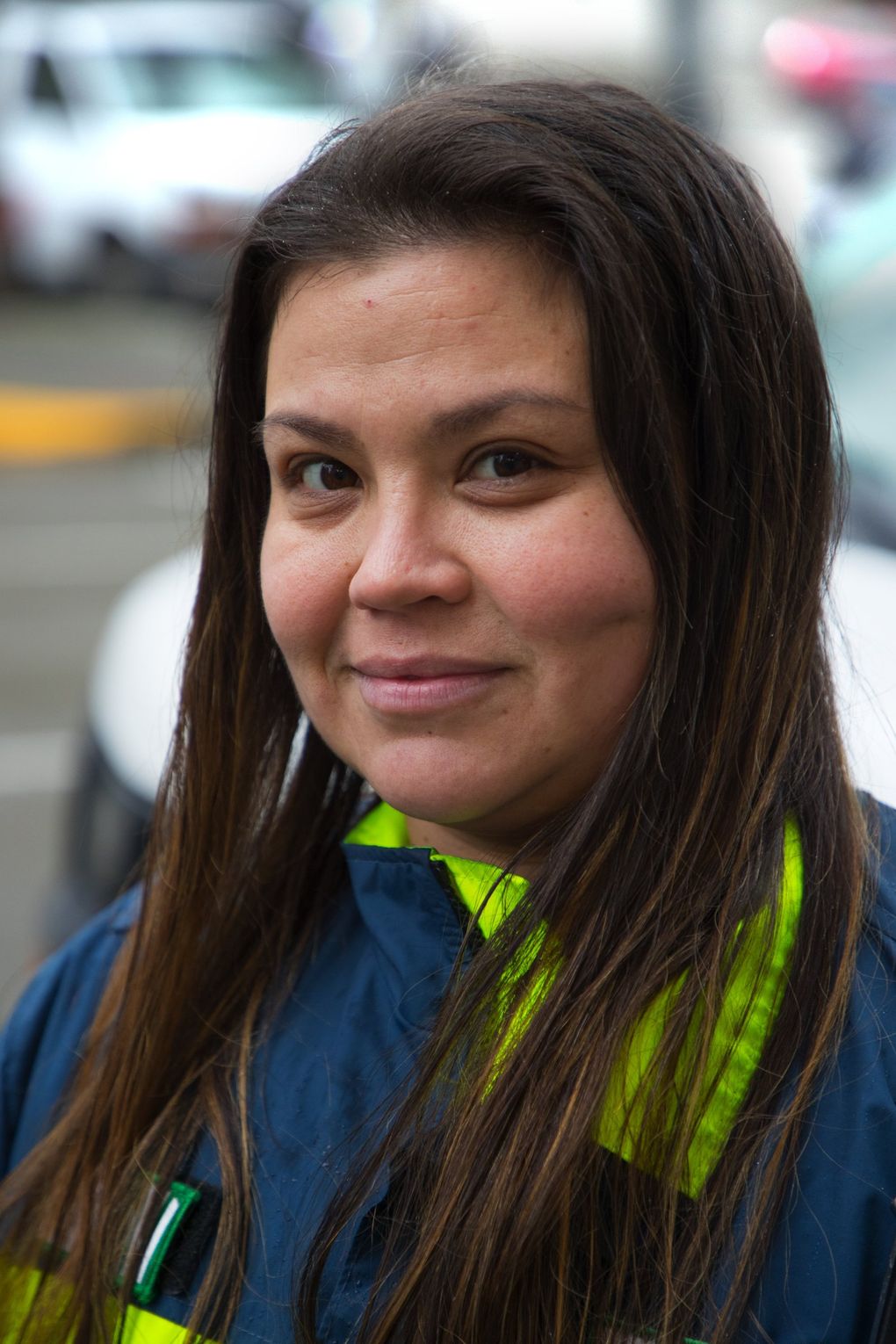
And I told.
At the end of the day, though, look where I’m at now. I have a job, the money’s coming. I have a place in Kent. It’s through the King County Housing Authority, so that’s how I’m able to make it. Otherwise my rent and my salary would kind of equal out.
I like what I do. I like being on the bike all day. I like being so close to my kids. They go to school here at Pike Place, so I get to see them going from their classroom to the playground. My son is 4 now, and my daughter’s about to turn 3 in March. On my breaks, I’ll peek in on them. I spy on them. They don’t know it. They’ll know when they get older.
And look how much I’ve grown as a person, as a mother, as a woman. I don’t think I’ll ever take anything that I did back. Because I think everything happens for a reason, and it’s weird how I’m back here and I’m able to help people that are on the street, in exactly the same position that I was.
